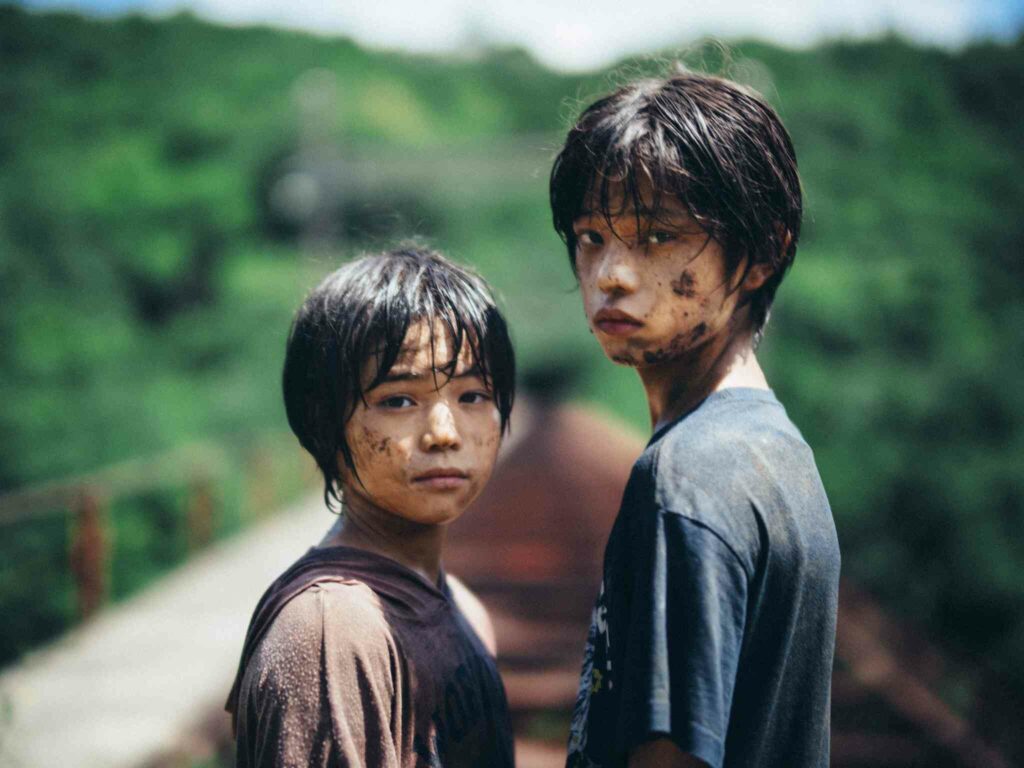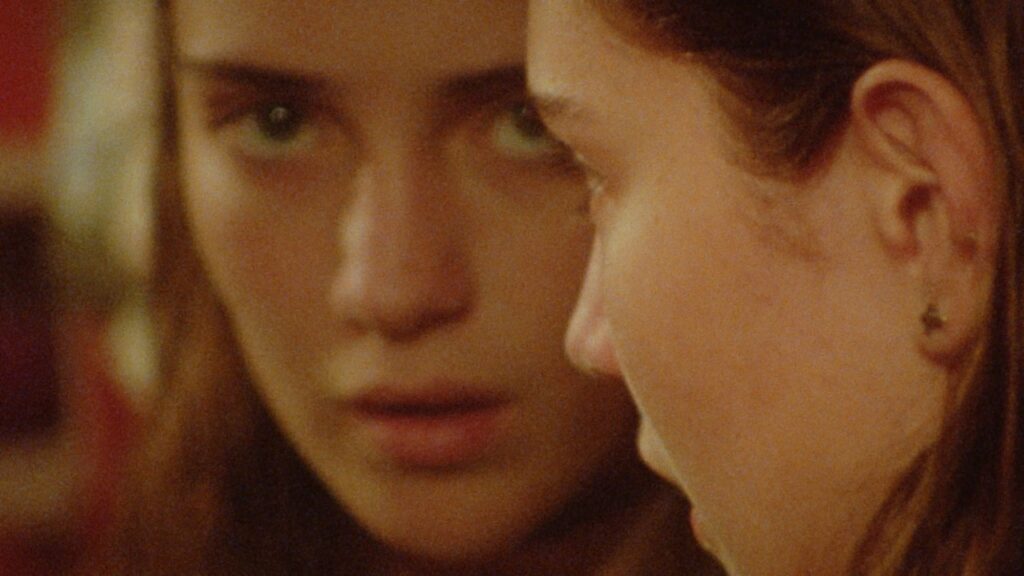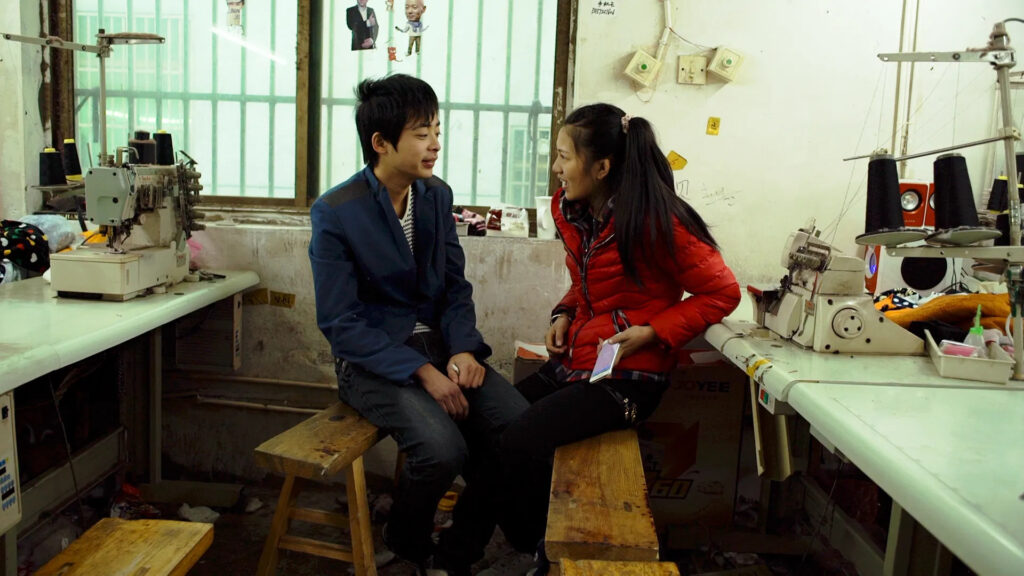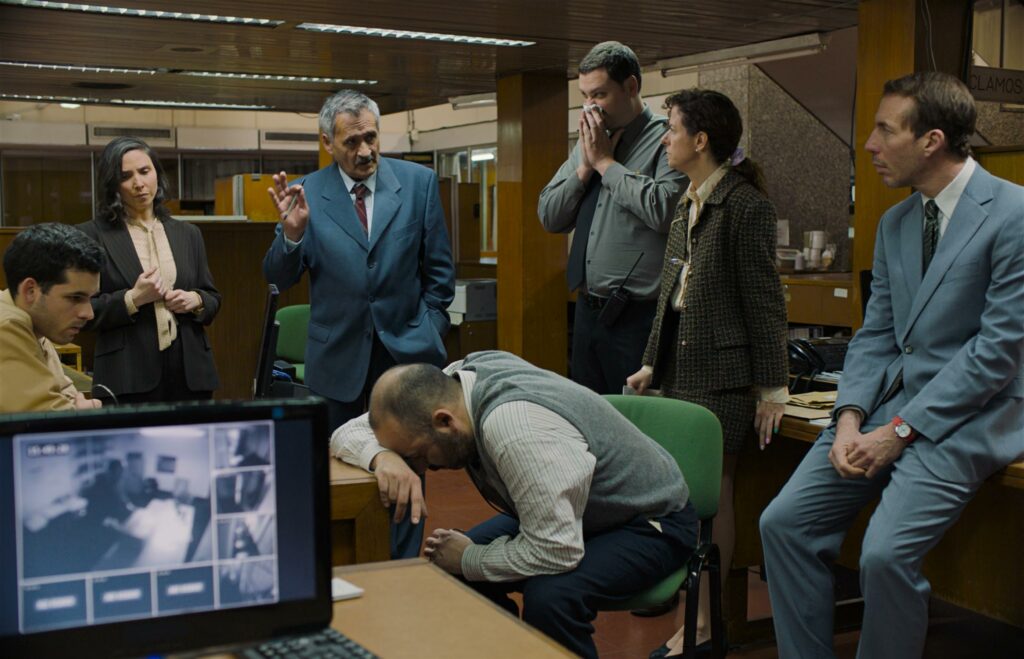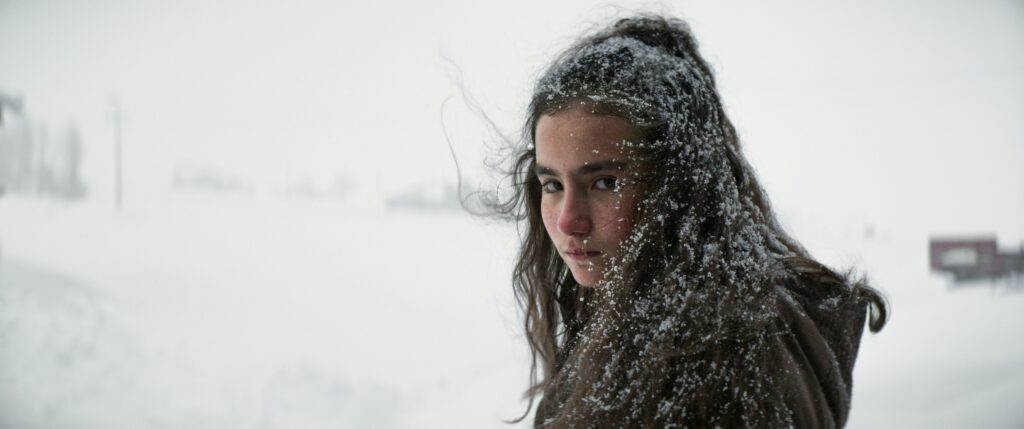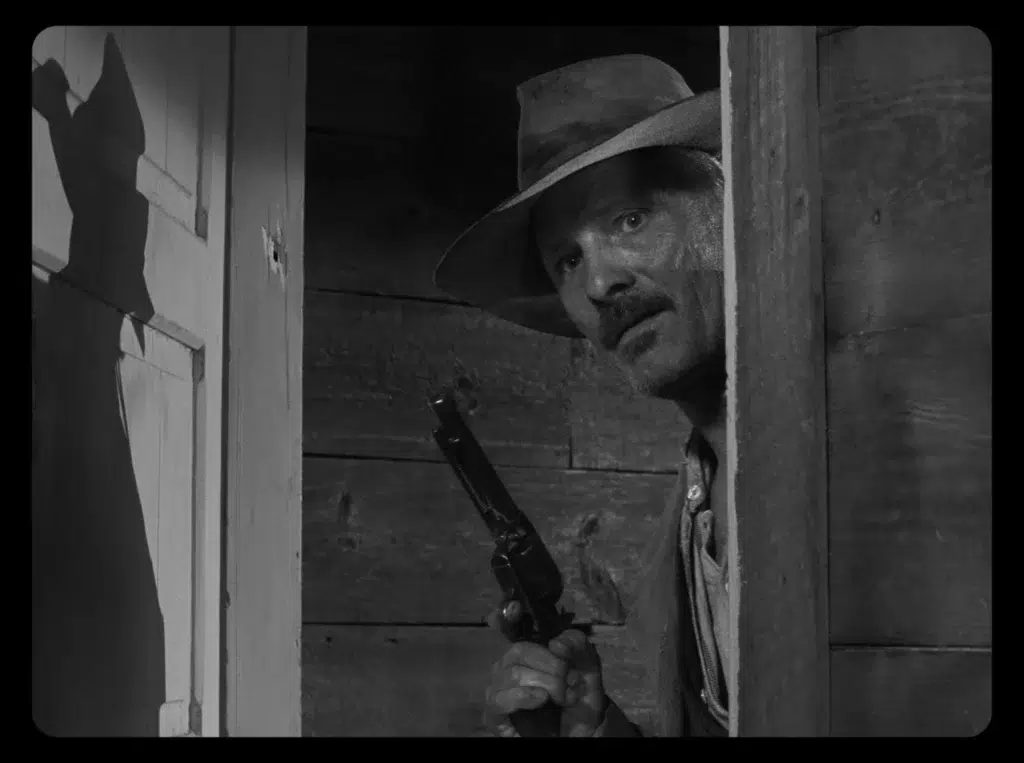Monster by Hirokazu Kore-eda
Prolific Japanese humanist filmmaker Hirokazu Kore-eda returns to Cannes after last year’s middling Broker. At a glance, Monster is an aesthetic departure. The film opens with a building engulfed in smouldering flame and moves forward with uncharacteristic darkness. Following an increasingly distraught mother’s investigation into her son’s erratic behaviour, Kore-eda plunges into nightscapes roamed by haunted youths. Narratively, the movie trisects into three acts, each shifting character perspectives to re-visit earlier moments through new eyes. The plot-twist riddled mystery structure reveals its early passages as red herrings adjacent to the emotionally simplistic story it settles into. The film’s narrative trickery reads disingenuous to its stabs at sincerity. Even Ryuichi Sakamoto’s piano accompaniment—a tender final score from the late maestro—is squandered by the film’s tendency towards histrionics.
Kore-eda leaves nothing to interpretation. Monster hyper-rationalizes every character decision, robbing each individual’s psychology of any mystery. Even the source of textural details (e.g. a haunting blare of horns echoing diegetically in the distance of a pivotal scene) finds narrative contextualization later. Still, Kore-eda includes a handful of moving shots: namely a lingering composition where two characters slam fists against a mud-coated window, struggling to shatter the glass as rainfall accelerates, growing so heavy it drowns out the visibility of their hands. It’s enough to wish Kore-eda’s filmmaking embraced a visceral film language more often. [2.5/5]
The Sweet East by Sean Price Williams
Sean Price Williams, whose cinematography defined a pervading aesthetic of 2010s American indie cinema, makes his debut feature with The Sweet East: an episodic nightmare comedy across state lines and into an all-American underbelly. The film follows Lillian, a runaway teenager drifting through a series of misadventures, encountering a million shades of American eccentricity and exploitative men at every turn. Lillian herself is an enigma, her own identity gradually sculpted through imprints of the characters she encounters. The Sweet East finds Williams’ gritty aesthetic imbued with flashes of absurdity (e.g., an opening music number, moments of fantastical artifice, silent-film intertitle chapter headings, etc.). Yet while his images are textured and strikingly-composed, Williams’ storytelling is largely sophomoric.
The film’s a self-consciously blunt satire of everything under the American flag; it opens with a pledge of allegiance recorded over motorcycle stunt footage and only grows less subtle. The film begins like arthouse All Gas No Brakes or a Harmony Korine movie if he settled for toothless irony. Soon enough, Sweet East becomes a thirty-minute Lolita adaptation, down to its Humbert Humbert-figure (Simon Rex as a slimeball neo-Nazi academic predator) reciting Poe’s “Annabel Lee.” Scripted by film critic Nick Pinkerton, the movie’s humour seems plucked from a milieu of nihilistic, early Trump-era Twitter memes. The film begins with a Pizzagate gag and stays beholden to the humour of this outdated zeitgeist. Ultimately, Sweet East operates on satire but reveals no true ideology. The movie is shapelessly ironic, nothing more than an articulation of doom. It’s apocalyptic fury distorted into grand apathy. [2/5]
Youth (Spring) by Wang Bing
Assembled over five years, Chinese documentarian Wang Bing’s latest film Youth (Spring) charts the lives (work lives, personal lives) of several teenage or twenty-something textile workers in Zhili, China. Their worlds consist of long hours toiling with fabric and collective bargaining with employers over unliveable payrates, all the while navigating the joys and hardships of youth. As a documentarian, Wang’s access into his subjects’ worlds is startlingly thorough. He films in domestic quarters, cramped workshops, and the streets of Zhili. Youth unfolds against industrial backdrops overrun with garbage. Wang cultivates an aesthetics of refuse: the waste which floods the streets, accumulates in the subjects’ dormitories, or remains on the workshop floor after a day of textile labour.
An invaluable documentation of Chinese labour politics, Youth centers the workers themselves as more than mere tools in the chain of production. Much of the movie unfolds as durational shots of workers working: hands operating sewing machines with aggressive familiarity. Wang is a silent observer (though he’s occasionally acknowledged by subjects). He organizes the movie around the rhythms and repetitions of his subjects’ lives, rather than narrative practicality or any didactic thesis. The film’s length and slowness paint an immersive portrait of a working-class day-to-day: a film form aligned with its subjects’ reality. [4/5]
The Delinquents by Rodrigo Moreno
The latest from Argentine filmmaker Rodrigo Moreno is a laidback, three-hour crime-comedy about two middle-aged bankers crushed by the tedium of their daily lives and the impossibility of escape. One devises a plan. He robs a sizeable amount from the bank vault. Before surrendering to authorities, he leaves the stolen fortune with his co-worker to guard for his three-and-a-half-year prison sentence. The film parallels the aesthetics of a bank vault with the interior of a prison compound, establishing a world where wage labour is indistinguishable from carceral life.
Moreno highlights his characters’ ennui, charging his low-stakes drama with an everyday desperation. The spoils of the characters’ crime are modest. The small sum is an appeal to an earned dignity unachievable in their work life. The Delinquents moves forward with ease, its careful framing unafraid to omit its subjects. There are some missteps—namely a late-film flashback sequence which complicates the minimalist storytelling—but Moreno displays tremendous control of the characters and their suffocating environments. [3.5/5]
About Dry Grasses by Nuri Bilge Ceylan
Here’s another Chekhovian drama set against forlorn wintery landscapes from Turkish filmmaker Nuri Bilge Ceylan. As usual, it’s a saga of arrogance and petty insecurities. About Dry Grasses follows a schoolteacher in remote Anatolia as he gradually succumbs to a miserablist worldview. The film finds its footing late: a half-hour dialogue between two characters which evolves from cordial to combative to melancholically sexual is among Ceylan’s best work. Otherwise, this lacks the intimacy of Ceylan’s smaller canvas movies (e.g. Distant) and the sweeping drama of his other epics (e.g. Winter Sleep). About Dry Grasses often feels like a rehash, too comfortable with itself for the story’s aching isolation to resonate. [2.5/5]
Eureka by Lisandro Alonso
Eureka, the long-awaited follow-up to Lisandro Alonso’s Jauja, is the filmmaker’s most ambitious project to-date. A free-flowing narrative, the story begins as a bullet-frenzied, classic western on a TV screen, moves into a modern-day South Dakota indigenous reservation, then glides to the jungles of 1970s Brazil. Alonso’s camera dissolves borders of space and time, establishing its own fluid continuity. Usually, the turns in Alonso’s movies are understated: vague ripples in an otherwise minimalist work. In Eureka, the shifts are abrasive and unmissable. Still, despite the magnitude of its zig-zags, the narrative flow isn’t quite as radical as you’d hope from a unique filmmaker like Alonso (especially after the similar narrative movements in Lois Patiño’s Samsara). The gestures feel vaguely hollow.
Nonetheless, individual moments in Eureka are vivid and beautiful. Alonso’s imagining of the Old West as a lawless Sodom, complete with boozehound nuns, is as imaginative as anything he’s made. The sequence’s irresistibility makes its role in the larger film all the more complex; Alonso situates Old West mythology in opposition to indigenous histories and realities. Curiously, Eureka is most energized trafficking in its own subversive séance of Old West debauchery. [3.5/5]

